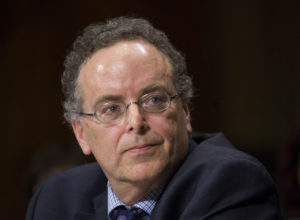The Securities and Exchange Commission (SEC) today rejected major changes to its whistleblower program in a 3-2 vote.
“Whistleblowers scored a major victory today when the SEC backed down from two proposals that would have devastated its whistleblower reward program,” said Stephen Cohena partner at Kohn, Kohn & Colapinto and chairman of the board of directors of the National Whistleblower Center. “The SEC did not approve proposals that would have triggered an automatic reduction in the amount of rewards issued in large enforcement actions. The dissents of Commissioners Lee and Crenshaw demonstrate that significant issues remain that could impact the program.”
“The SEC also changed a proposal that would have disqualified countless numbers of whistleblowers who simply failed to file a mandatory form. The SEC modified its proposal to ensure that qualified whistleblowers would remain eligible despite minor technical deficiencies.”
“Significantly, every Commissioner, regardless of political party, strongly praised the SEC’s Dodd-Frank Act’s whistleblower law, recognizing the importance of paying awards to whistleblowers and the invaluable contributions whistleblowers make to protecting investors.”
“The unanimity of support for the basic principles underlying the whistleblower reward law sends a powerful message to Wall Street,” Kohn said. “Despite their best efforts to undermine whistleblower protections, the worst features contained in the proposed rule changes were not implemented.”
“Although the program was not gutted, the dissents from two Commissioners demonstrate that work needs to be done to ensure that whistleblowers are fully protected and the intent of Congress is achieved. We will continue to work with Congress and the Commission to make sure this highly effective programs works for every qualified whistleblower.”
“We are extremely troubled by the Commission’s adoption of a “related action” rule that is contrary to the statute and public interest. The rule as approved opens the door to stripping whistleblowers from obtaining rewards under numerous laws administered by other agencies. Congress wanted to ensure that this type of shell game could not be played to the determent of whistleblowers. We expect that this provision will be challenged in court.”
The final rule and comment is 191 pages long.
In an interview with Corporate Crime Reporter in December 2019, Kohn said that the proposed SEC rule would cap large rewards. Kohn is no stranger to large rewards having reeled in the record – a $104 million whistleblower reward to IRS whistleblower Brad Birkenfeld.
“In 2018, the SEC made proposed changes,” Kohn said at the time. “And a number of those changes would have devastating impacts and undermine the program – if not completely destroy it.”
“They were creating a regulatory scheme so that the bigger rewards would get the lowest percentage recovery to the whistleblower,” Kohn said. “They have to give at least ten percent. But if you were going to get an award of $30 million or more, they were going to keep you at the ten percent level. As we pointed out, that would discourage the big fish – the employees higher up in the corporation who make a lot of money. They are some of the best sources. It would have a devastating impact.”
The SEC’s whistleblower program was created to incentivize individuals to report high-quality tips to the Commission and assist the agency in its efforts to combat wrongdoing and, as a result, better protect investors and the marketplace.
Since the program’s inception ten years ago, whistleblowers have made a significant impact on the Commission’s enforcement efforts and protection of investors.
Original information provided by whistleblowers has led to enforcement actions in which the Commission has obtained over $2.5 billion in financial remedies, most of which has been, or is scheduled to be, returned to harmed investors.
The SEC has awarded approximately $523 million to 97 individuals since the program began, and it has worked over the years to improve the program’s efficiency and increase incentives for whistleblowers.
In the past three and a half years, the agency has made the five top largest awards in the program’s history – two at $50 million, and one each at $39 million, $37 million, and $33 million.
It has also increased the pace at which it has been processing claims and making awards. This year so far, even with the challenges presented by COVID-19, the Commission has processed more claims than in any previous year.
“The Commission’s enforcement efforts, and most importantly, American investors and markets, have greatly benefitted from the credible information and assistance that whistleblowers have provided,” said SEC Chairman Jay Clayton. “Whistleblowers often take professional and reputational risks in reporting their information to the SEC and we are committed to rewarding them for taking those risks and contributing to our enforcement efforts. Today’s rule amendments will help us get more money into the hands of whistleblowers, and at a faster pace. Experience demonstrates this added clarity, efficiency and transparency will further incentivize whistleblowers, enhance the whistleblower award program and benefit investors and our markets.”
Among other enhancements, the amendments provide a mechanism for whistleblowers with potential awards of less than $5 million (which historically have represented nearly 75% of all whistleblower awards), subject to certain criteria, to qualify for a presumption that they will receive the maximum statutory award amount. Other awards will continue to be evaluated consistent with past practice.
The amendments also affirm that award amounts – which the Commission, in its discretion, can determine in percentage terms, dollar terms or some combination – are to be determined exclusively based on the application of the award factors set forth in the Commission’s whistleblower rules.
In other words, there is not a separate – post application of the award factors – assessment of whether award amounts are too small or too large.
